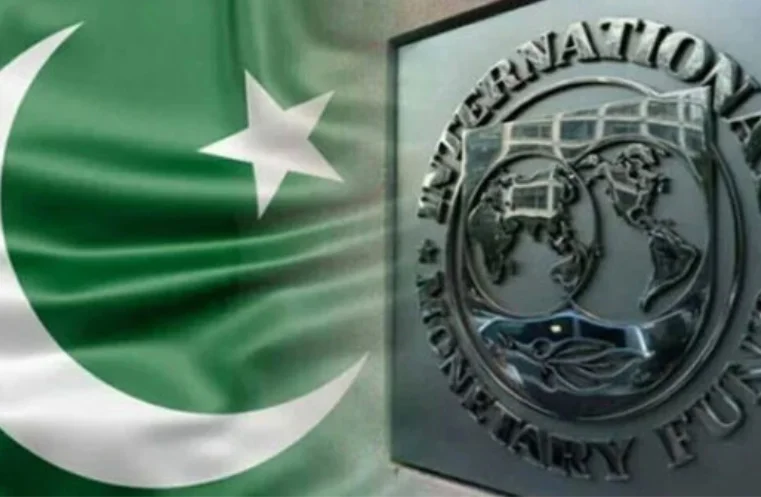ISLAMABAD, March 15: An IMF mission, led by Nathan Porter, and Pakistan reached at a new arrangement of Resilience and Sustainability Facility (RSF) which would provide it additional resources.
The Fund team visited Islamabad and Karachi from February 24 to March 14, 2025, to hold parleys on the first review of Pakistan’s economic program supported by the Extended Fund Facility (EFF).
At the conclusion of the discussions, Mr. Porter issued a statement too:
“The IMF and the Pakistani officials made significant progress toward reaching a Staff Level Agreement (SLA) on the first review under the 37-month Extended Arrangement under the Extended Fund Facility (EFF)”.
The IMF Mission Chief also adds.
“Program implementation has been strong, and the discussions have made considerable progress in several areas including the planned fiscal consolidation to durably reduce public debt, maintenance of sufficiently tight monetary policy to maintain low inflation, acceleration of cost-reducing reforms to improve energy sector viability, and implementation of Pakistan’s structural reform agenda to accelerate growth, while strengthening social protection and rebuilding health and education spending”.
Climate change disasters struck the country and suggested to get more funds from IMF, which it is now agreed after a year long efforts from the local officials.
“Progress has also been made in discussions on the authorities’ climate reform agenda, which aims to reduce vulnerabilities from natural disasters-related risks, and accompanying reforms which could be supported under a possible arrangement under the Resilience and Sustainability Facility (RSF)”.
The mission and the authorities will continue policy discussions virtually to finalize these discussions over the coming days.
The IMF team is grateful to the Pakistani authorities, private sector, and development partners for fruitful discussions and their hospitality throughout this mission.
Positive End of Talks and Additional $ 2 Bln
Though IMF did not indicate any funds in its statement but its likely to get additional window of funds.
Earlier Bloom Pakistan learnt that, Pakistan is in discussions with the International Monetary Fund (IMF) to secure a $2 billion loan, which would include a $1 billion loan tranche and an additional $1 billion allocated for climate financing.
Also Read: IMF Pakistan Talks Heading Towards Settlement
This request was made during recent talks between Pakistan and the IMF, with hopes of receiving approval in a single disbursement for both the loan and climate financing.
However, the climate financing portion is likely to be disbursed in installments.
Sources from the Ministry of Finance told Bloom Pakistan that the IMF delegation has confirmed the request will be presented to the IMF’s Executive Board for approval.
The loan approval is expected to happen between April and May, following the completion of economic review talks.
If approved, this loan could provide significant support to Pakistan’s economy, especially in addressing climate-related challenges.
Two key issues pending were the new tax targets for the rest of the fiscal year and the circular debt issue’s financing. The discussion on these two points were concluded on both sides agreeing on one agenda point.
Enhancing Petroleum Levy
Sources privy to the talks also said, that it has also been decided to impose petroleum levy of Rs 70 per liter with additional Rs 10 than the current rate. Its also to use the funds for cutting electricity tariff.
The Levy would be enhanced to absorb the price cut.
Pak-IMF Talks Ends on Positive Note
Pakistan has successfully reached an understanding with the International Monetary Fund (IMF), avoiding the need for a mini-budget before the end of the current fiscal year in June.
This agreement comes as the final round of discussions between the Pakistani government and the IMF nears completion, setting the stage for the disbursement of a critical $1 billion tranche under Pakistan’s ongoing $7 billion loan program.
Read More: IMF Pakistan Reach Deal to Cut Tax Target by Rs 620 Bln
According to senior officials from the Ministry of Finance, the IMF has responded positively to Pakistan’s recent economic performance, demonstrating confidence in the country’s fiscal management.
Discussions Concluded by Finance Minister
The discussions, led by IMF delegation chief Nathan Porter and Finance Minister Muhammad Aurangzeb, focused on both past economic progress and future policy commitments.
One key aspect of the negotiations was the IMF’s emphasis on expanding Pakistan’s tax base.
The global lender urged the government to bring more businesses, particularly in sectors like retail, wholesale, real estate, and dealerships, into the tax system to ensure long-term revenue sustainability.
Despite this, officials successfully negotiated a reduction in the annual tax revenue target set by the Federal Board of Revenue (FBR), lowering it from Rs. 12,970 billion to Rs. 12,370 billion, citing improvements in the tax-to-GDP ratio.
The IMF, however, remained firm on eliminating tax exemptions for wealthier segments of society.
Large-scale agricultural landowners are expected to face direct taxation on their earnings, while high-income industrialists will be subject to a super tax.
The IMF also emphasized the need for the government to quickly implement these taxation measures to ensure equitable and sustainable revenue generation.
This agreement with the IMF is seen as a positive step for Pakistan’s economic stability, with the hope that it will lead to the successful release of the loan tranche and continued fiscal reform in the coming months.
